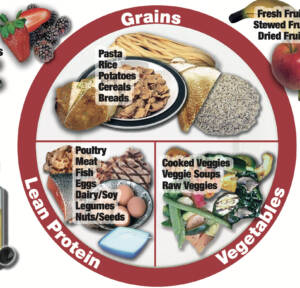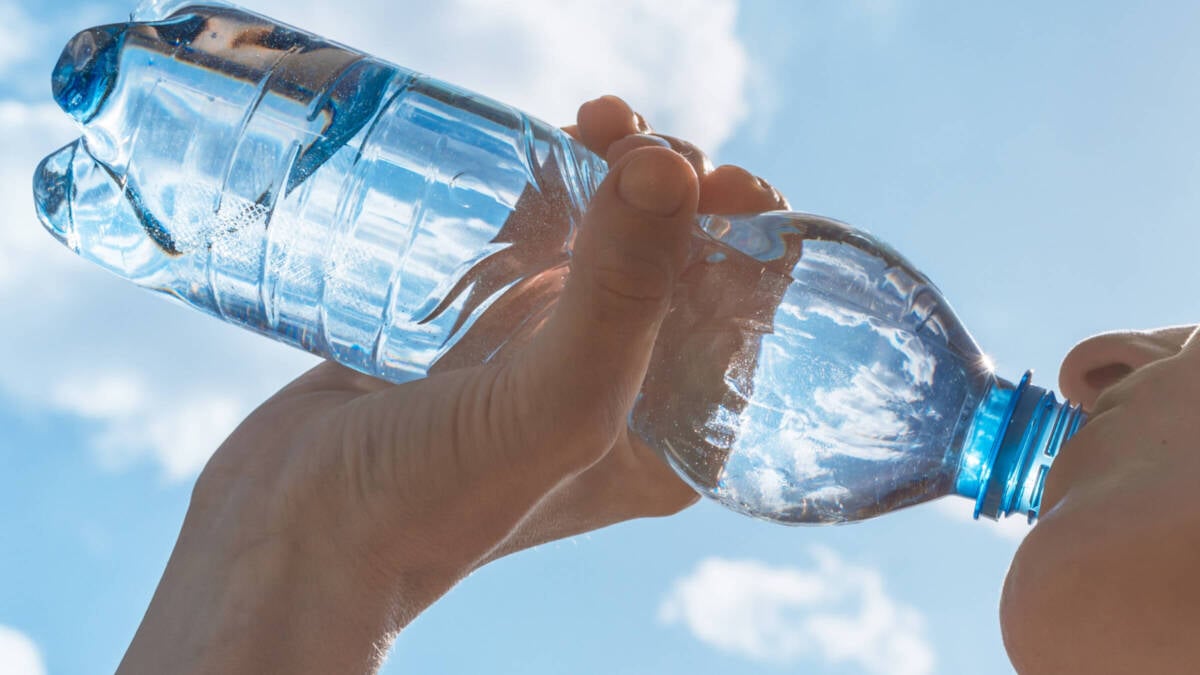Registered Dietitian: How to Eat in the Off-Season for Runners
Reviewed by Megan Robinson, RD: Maybe you just finished a big race and are now enjoying the off-season (congrats!). Or, if you are like me this past year, you are injured and not running AT ALL …figuring out how to eat when you aren’t running or running a lot can be very confusing. Enter a registered dietitian’s offseason diet tips.

My goal for this article is to take the guesswork out of your offseason diet and allow you to pull up a chair at the dinner table confident in what you’re eating. It is NOT to encourage any sort of restriction. As someone who suffered from RED/S and disordered eating, I am very much against any sort of restriction. Instead, I am in full support of mindful eating.
Of course, we all want to retain the physique we have when we are running. But it is important to note that some weight gain in the off season is normal and often necessary. Even professional athletes will gain weight in the off season.
My Off-season Diet Confusion
However, if you are like me, eating when you are running a lot like training for a marathon, is not only a joy and privilege, but also constant. When I am doing intense training, I am eating almost all the time, and not thinking about my caloric intake. Food is fuel.
But when I’m not running my body needs less fuel—but I don’t know how much less. And I start to doubt my nutrition.
Megan Robinson, registered dietitian specializing in sports nutrition and running coach, says I’m not the only one puzzled over how to eat in the offseason. Runners are used to eating and when not running, we need to be more intentional about what and when we are eating.
The when has been huge for me during this most recent injury layoff with a labral tear. I was used to eating at certain times of the day and learned to slow down and pay attention to my hunger cues. Just because I was used to eating a snack at 10 a.m. didn’t mean I had to eat at that time when my body wasn’t burning through food as fast. So, I learned to eat when hungry. Now that I am returning to running, I am eating more as my energy expenditure (and hunger) increases.
This is one of many tips Robinson shares with runners for their off-season diet.
In this article she provides guidance on how to meet your nutritional needs when you aren’t running as much. I will also include 10 snack ideas and 5 dinner ideas for an offseason diet.
Let’s get going!
Related: Marathon Fueling 101: What Runners Should Eat
8 Tips from a Registered Dietitian on How to Eat in the Off-Season for Runners
1. Eat carbs! But not as much.
Carbohydrates play an important role for runners as grams of carbohydrates (aka glycogen) are our main fuel source. However, when you aren’t running as much, you don’t need as much fuel. Therefore, Robinson recommends adjusting your carbohydrate intake.
But do not avoid them. Carbs are part of a healthy diet and important for overall health. As a general rule, cutting out any of the main food groups is usually not recommended as a healthy diet.

Instead, Robinson says to use the TEAM USA Athletes Plate to help adjust carbohydrate portions during the off-season. With this plate, carbs go from taking up half the plate to taking up a quarter.
2. Limit sports drinks.
I know, they taste so good! But drinking sports drinks with sodium and carbs isn’t recommended as part of an offseason diet because you don’t need those extra electrolytes or carbs as much. Also avoid eating or drinking other dietary supplements such as energy gels and bars when running less.
3. Keep up the protein.
You still want to keep your protein-rich diet even when not running as much in the offseason, base phase, or in general during the winter months. Eat protein every 3 to 4 hours to build your muscles but also keep avoid hunger. Aim for about .6 to .8 grams of protein per pound of body weight a day in the offseason. So, if you weight 140 pounds, that would be about 100 grams of protein for the day.
4. Eat more vegetables.
Do I sound like your parents when you were little? Robinson backs me up. She says fiber and roughage from vegetables can cause GI issues when running higher mileage and interfere with eating enough energy from carbs.
However, during the off-season, you have the liberty load up at least half of your plate from salad, roasted, steamed or grilled vegetables. Doing so will help you keep your body healthy and strong in the offseason. The fiber from the veggies will also keep you fuller for longer.
5. Snack only when hungry.
This was my biggest mistake early on was that I would snack when I was used to snacking. I used to be accustomed to eating at least 3 snacks a day but I had to re-learn that eating these snacks or small meals out of habit wasn’t well-suited for my offseason diet.
Robinson explains, as long as you are not skipping meals and eating enough protein, you may not be as hungry during the off-season. So, snack less. Snacking less will help you avoid unnecessary weight gain in the offseason.
6. Listen to your hunger cues.
This was another lesson I had to learn—essentially the art of intuitive eating. I had to learn to eat when my body was telling me it needed to eat rather than the clock. Robinson advises offseason runners to snack on more nutrient-dense foods like yogurt, nuts, vegetables and hummus, if hungry.
7. Drink water.
Stay hydrated in the offseason. Even though you aren’t drinking sports drinks as regularly, drinking water throughout the day should be a part of your offseason diet. This will help your body function properly and keep you fuller so you don’t eat more than your body needs.
8. Don’t hold back.
This one comes from me, not Robinson. But don’t restrict foods or even try to keep to eating a certain number of meals. Eat what you want. Eat when hungry. If you’re going out for ice cream with your kids and want ice cream, get the ice cream and move on.
Counting calories, limiting meals, and cutting out food is playing with fire in my mind. Give your body what it needs to be strong. Use these tips as a guide so you know you are doing it within reason. And remember eating a lot on a single day or one meal isn’t going to change you or your body suddenly. Enjoy food. Enjoy life.
10 Snack Ideas for a Runners’ Offseason Diet
- Apple slices with peanut butter
- Crackers and string cheese
- Carrots and hummus
- Whole grain crackers and cheese and raspberries
- Rice cake with cashew butter
- Celery and peanut butter
- Kodiak cake with peanut butter and strawberries
- Greek yogurt with some granola
- Half a cup of dried fruit and nuts
- Lara bar or Kind Bar with a glass of milk
Get more snack ideas for runners here.
5 Dinner Ideas for a Runners’ Offseason Diet
- Chicken kabobs with a side of veggies and jasmine rice
- Salmon with a side of roasted broccoli and half-baked sweet potato
- Avocado toast with pesto and egg whites and a hearty salad
- Salad with cooked tuna steak with soy sauce and sesame seeds, sunflower seeds, almond slices, berries, feta cheese, and DIY dressing (oil and vinegar, mustard, lemon juice, salt and pepper)
- Chicken, roasted asparagus, and quinoa
I hope this advice helps you maintain your healthy eating so you can tackle your next training (and meal!) with confidence and success!
If you want a custom plan to fit your running goals and busy schedule, check out my run coaching services. Do you change how you eat in the off-season?






